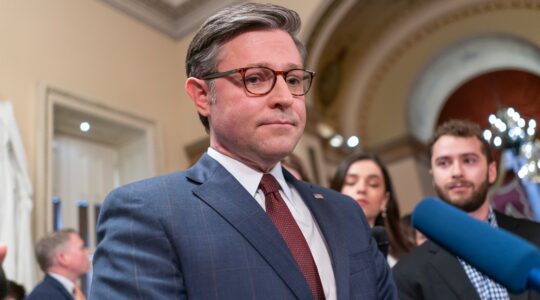Yeshiva University President RIchard Joel sent out the following letter Tuesday, acknowledging that the university lost $110 million it had invested with J. Ezra Merkin’s Ascot Partners, which was wiped out by the Bernard Madoff scandal.
Joel wrote that the school’s endowment had shrunk from $1.7 billion in January 2008 to $1.2 billion now. That includes both losses in the stock market and the Ascot investment.
The Y.U. president also announced that the university has "engaged Sullivan & Cromwell and Cambridge Associates, internationally renowned and respected institutions with recognized expertise in corporate and institutional governance, to ensure that our policies and procedures and structure reflect not only best practices, but the gold standard — the standard to which we aspire for all our endeavors."
Despite it all, Joel insisted, the university remains financially strong.
Here is the letter:
Dear Yeshiva University Community,
I would like to speak with you, members of the Yeshiva University Community, about recent events in the news. As a result of the last week’s revelations regarding Bernard Madoff, much concern and speculation has arisen regarding Yeshiva University. I write to you to make our situation clear.
Before going further let me reassure you:
1. The University is financially strong.
2. Be assured that our levels of scholarships and financial aid will not diminish.
3. Yeshiva University staff pensions are not impacted by this revelation.
4. Our leadership, faculty and students are engaged and advancing.
5. We will learn all appropriate lessons from this experience.
6. We have been engaged over the last two months in reviewing our budgets to seek ways to cut our operating costs due to global economic realities. We will continue to do so and remain committed to advancing our crucial mission of providing an education that ennobles and enables our students
Bernard Madoff is no longer associated with our institution in any way. The University had no investments directly with Madoff. Last Thursday night, we were informed by Ascot Partners, a vehicle in which we had invested a small part of our endowment funds for 15 years, that substantially all its assets are invested with Madoff. The Ascot fund was managed by J. Ezra Merkin who has served as a University trustee and chairman of the investment committee. Mr. Merkin has resigned from all University positions.
In the most recent statement from Ascot, Yeshiva’s investment was valued at about $110 million, which represents about 8% of our endowment. While these facts are disappointing, we need to remain focused on the larger picture. We are but one of many institutions and individuals that have been impacted.
Let me be clear regarding our financial position: the University’s endowment, taking into account the Ascot loss, is currently estimated to be approximately $1.2 billion, down from approximately $1.7 billion on January 1, 2008. That loss of 28%, calendar year-to-date, compares with an S&P loss of 38% and Dow Jones loss of 32%. While certainly this represents a painful decline, we are in the same or better position as many universities. Although this decreased endowment must factor into our long term fiscal plans, it will have minimal impact on day-to-day operations. Total income from endowment last year represented 13% of the University’s operating income. Much more critical to our future health is the continued level of financial support from the YU family, philanthropists, and friends. So, while we are in a healthy and strong position to move forward, we must use the moment to address all concerns that this situation has illuminated.
In light of recent developments, we have decided to examine our existing conflicts policies and procedures, and governance structures to assist us in this process. We have engaged Sullivan & Cromwell and Cambridge Associates, internationally renowned and respected institutions with recognized expertise in corporate and institutional governance, to ensure that our policies and procedures and structure reflect not only best practices, but the gold standard — the standard to which we aspire for all our endeavors. We will be working closely with our advisors over the coming weeks and months and I’m confident that we’ll emerge stronger than ever.
I must add a more personal thought. We all should use these times to reflect on our blessings but also to reflect on our responsibilities. We should constantly be communally introspective and focus on advancing our ideals. The times are appropriate for us to focus on our core values, to practice and refine them and to share them with the world. We can and should always advance. Yeshiva University is committed to engaging in that conversation with other people of good will. I thank you for your interest, commitment and support.
Sincerely,
Richard M. Joel
President, Yeshiva University





